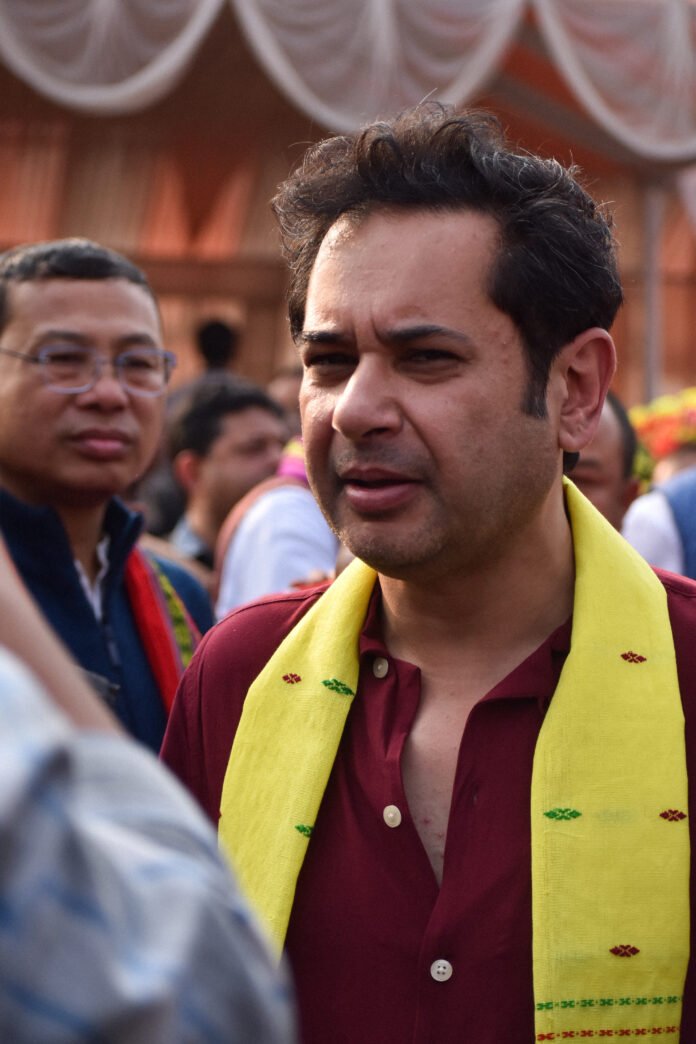Pradyot Debbarma, a prominent political leader in Tripura, has sparked controversy with his recent statements about Bangladeshi immigrants. Debbarma announced his intention to expel every Bangladeshi from the Northeast and Tripura, emphasizing that this action is a priority for him. His comments have ignited a heated debate about immigration and regional identity.
In a recent address, Debbarma declared, “I will make sure that every single Bangladeshi is removed from the Northeast and Tripura.” He revealed plans to instruct the Tipra Indigenous Students Federation (TISF) and the Youth Tipra Federation (YTF) to identify Bangladeshi students currently studying in the region. According to Debbarma, this measure is part of a broader strategy to protect the rights and interests of the indigenous people of Tripura.
Debbarma’s statements come amidst ongoing tensions about the presence of illegal immigrants in the region. He claimed that the influx of Bangladeshis has led to numerous socio-economic problems, including increased competition for resources and job opportunities. “Our region is under siege,” he said. “We must take immediate steps to address this issue.”
Critics of Debbarma’s approach argue that such actions could lead to increased tensions and discrimination. They contend that focusing on nationality and ethnicity might exacerbate existing social divides and undermine community harmony. Furthermore, they point out that many Bangladeshis in the region are legal immigrants or students who contribute positively to the local economy and culture.
Supporters of Debbarma’s stance, however, view his actions as a necessary step to address the perceived threats posed by illegal immigration. They believe that his commitment to protecting indigenous rights aligns with broader regional sentiments. For them, Debbarma’s approach represents a strong stand against what they see as the adverse effects of unchecked immigration.
Debbarma’s remarks have also garnered attention from political opponents and civil rights groups. Critics argue that his focus on expulsion rather than integration or legal reform might lead to unnecessary hardships for individuals who are already established in the region. They also raise concerns about the legality and morality of forcibly removing people based on their nationality.
In response to the criticism, Debbarma maintained that his primary goal is to ensure the welfare of Tripura’s indigenous communities. “I am fully committed to defending the interests of our people,” he asserted. “The current situation demands decisive action.”
The controversy surrounding Debbarma’s statements highlights ongoing debates about immigration, identity, and regional governance in India. As political leaders and activists weigh in on the issue, the situation remains fluid, with varying perspectives on how best to address the complexities of migration and integration.
The Tipra Indigenous Students Federation (TISF) and the Youth Tipra Federation (YTF) are preparing to carry out Debbarma’s directives. They are expected to begin their work in the coming weeks, focusing on identifying Bangladeshi students and assessing their status. This move is likely to further intensify the debate over immigration policies and their impact on local communities.
The implications of Debbarma’s stance extend beyond Tripura, affecting broader discussions about migration in the Northeast and India as a whole. As the situation evolves, it will be crucial to monitor how various stakeholders, including government authorities, civil society, and affected communities, respond to these developments.
Pradyot Debbarma’s announcement to expel Bangladeshi immigrants from the Northeast and Tripura has sparked a significant controversy. While some view his actions as necessary for protecting indigenous rights, others fear that such measures could lead to increased social tensions and legal challenges. The situation remains dynamic, with ongoing discussions about the best approach to address immigration and its impacts on regional communities.


